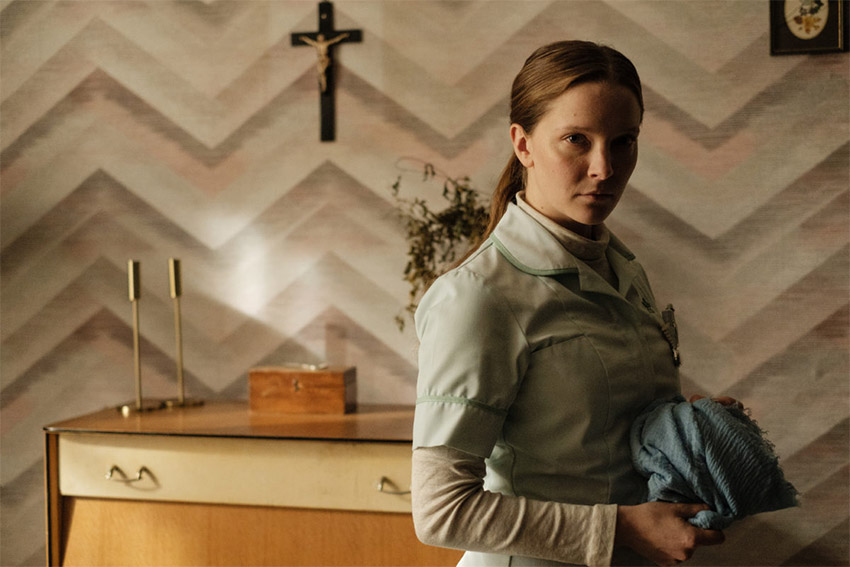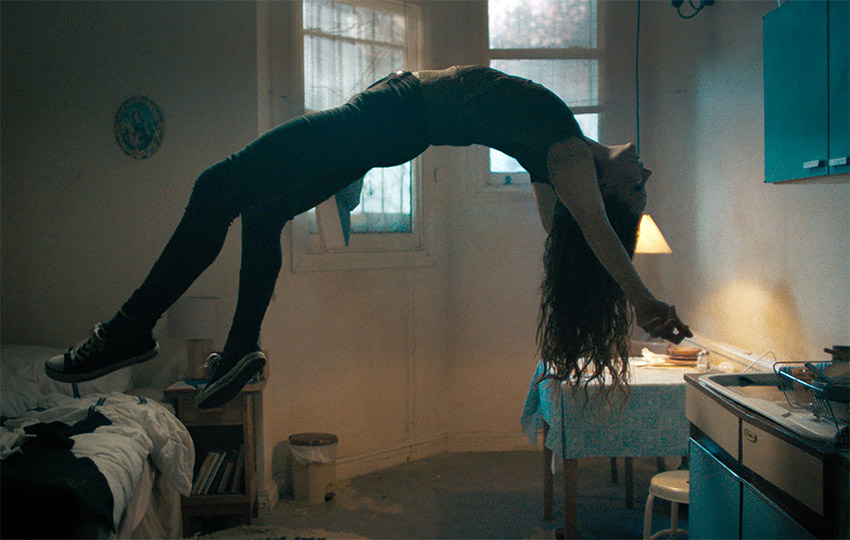| |
“They call people who speak to God, pious. They call people to whom God speaks, lunatics.” |
| |
The Transmigration of Timothy Archer by Philip K. Dick |
Let’s open the curtains. Let there be light. There was an older Scottish man at an event at which Professor Richard Dawkins, the evolutionary biologist and the UK’s most famous atheist, was headlining. The earnest gentleman asked in all seriousness the following question; “What would you say to me if I told you that my faith in God stops me from sinning?” With barely a pause to consider his response, Dawkins said “I’d say you were mad.” And that’s really the territory we are exploring here. If, like most in my generation, you were indoctrinated into a structured religion as a child, it requires some force of will to free yourself from its pervasive grip. If you lather as much wet cement as you can on an open and trusting young mind, as an adult that cement is now rock hard and quite impervious to most arguments. Logic and reason shrug their shoulders as people act in accordance to their beliefs even in the face of stark reality. We are, as reasonable people, slowly prising our culture from the grip of structured religion. Overtly zealous believers now appear to be looked on as perhaps a little out of touch, sad and perhaps deluded. Churches are more frequented by lead roof thieves than worshippers in my area. We still have our religious foot soldiers preaching kindness, burying our dead and officiating over new life but despite overwhelming evidence to the contrary over the last four years, human beings do evolve and in the not too distant future, there will be people smiting their foreheads and asking incredulously “What were they thinking?” But Maud in Saint Maud is still a very recognisable character today, a desperately lonely young woman who gravitates towards God because there’s no one else there for her.

There are certain ways filmmakers express themselves that speak to me directly. What the good ones do is present something familiar so it can be reinterpreted or thought of differently. In the script, it probably says “Maud puts on some soup.” On screen, it’s the bubbling lava pits of hell being evoked and from that early image I knew I was in good hands, those of a director who has a wonderful name for the entertainment industry, Rose Glass. For a debut feature Saint Maud is remarkable, assured, unnerving and the fastest 83 minutes you’ll sit through all year. It begins with a series of surreal and bloody images (from which Wikipedia tells me I was supposed to deduce that someone called Katie has failed to save a life after performing CPR. I got none of that on a first viewing – my fault but it matters little. I just enjoyed the unusual and disturbing shots as mood establishers). We settle with Maud (aka Katie), an unassuming young girl wearing a nurse’s outfit setting off to relieve a colleague. Her voice over reveals her to be a devout Catholic who is curious about God’s chosen role for her in life. She is providing palliative care for a famous ex-dancer who has, for reasons questioned by Maud herself, settled in Scarborough. Maud sees it as part of her role to save the soul of this once lithe and agile woman, Amanda, going through the terminal stages of lymphoma. The stricken older woman’s behaviour with friends underlines the fact that her end is near – revelling in booze, cigarettes and fraternising with female prostitutes. Maud puts her foot down and in a spirited exchange, orders the call girl away. It doesn’t take long for her relationship with Amanda to spiral out of control as she underestimates and misreads people sending her back to the habits and sins of a past life…
Maud seems to be able to exist only at either end of a behavioural line that starts low down in Sin City and goes all the way up to righteous, deluded God botherer. She barely passes any ground (where most of us live) in between both polar opposites and snaps from one to the other in a split second. The filmmakers make no judgements about Maud nor let us in to whether this is a tale of a deluded, mentally ill, hallucinating young woman or a genuine fantasy in which we take as ‘real’ what we are watching. The biggest clue to the answer to this question is left to the very end. Just don’t blink. There are a few moments when Maud has a fit or seizure and I am convinced that there is a little digital trickery in extending her open mouth. The swift cutting away from the sight, the edit both confident and bold, ensures the audience asks the question “What did I just see?” In fact editorial decisions not directorial ones (though they often complement each other) lace the film with that unsettling vibe that the film evokes so well. There are many scenes that other filmmakers may have left to play a little longer but making the audience complicit in imagining what’s going on ‘between the sprockets’ - if I can paraphrase the more literary expression - is a far more effective goal which also results in a short running time. I’m very curious if a lot was edited out. It’s pared to its bones and all the better for it. Its modest running time also enforces the narrative’s power. We are given just enough time to see things from Maud’s perspective, agree or disagree with choices made and then witness the consequences. This is storytelling that just oozes class.
Director Glass is considerably supported by two fine central performances. In almost every scene, Morfydd Clark as Maud/Katie, is revelatory in every sense. Her faith isn’t just believed in, it’s exhibited in her body language. She renders the term ‘strait-laced’ as an under-achiever. Clark does two things as an actress that I always find remarkable. Stillness on screen is very under-rated. A still character can radiate communication because the audience is invited to examine a face or stance much more closely than following physical action. Clark lets the camera examine her minutely. Secondly, she can communicate great emotional range in a single shot almost daring the editor to cut away. Her work has been rightly hailed in Saint Maud and I had a shock last night seeing her in The Personal History of David Copperfield playing both David’s mother in the opening and then his employer’s rather eccentric but entertaining daughter Dora with whom David thinks he’s in love, an interesting Oedipal casting choice. Clark has a chameleonic face, which means she can really inhabit a character. If asked, I would not have known she had played both roles from a few viewings, so far inside the characters she placed herself. Her natural (I assume) Cardiff accent is out and proud in Dora, one that I never picked up having been born there and having grown up there for a few decades.

As the dying Amanda, Jennifer Ehle is superb not least because she is stripped of her natural beauty. From her chain smoking introduction, we realise this is not a usual part for the actress whose claim to fame was as Elizabeth Bennet in TV’s landmark Pride and Prejudice in 1995. It’s fascinating that two quintessentially English characters were both successfully played by Americans, Brigitte Jones (Renée Zellweger) being the second. Ehle is striking as a bald, embittered older lady (I believe Glass had someone older in mind for the character and Ehle was 49 at the time of shooting) but with a Welsh and American actress in essentially a two hander, it emphasizes their outsider status in an English seaside town. Clark and Ehle are superb together each one activating and inspiring the other to take things just that little deeper into darker areas. Religious fervour is more than hinted at as being akin to physical pleasure if not orgasm itself. This is not a new idea but it’s played so earnestly and so well that the connection comes across as fresh and original.
The score by composer Adam Janota Bzowski – which I just downloaded and am listening to now – is nightmarish and drags you slowly through a twisted mind uncaring that the sharp edges cut deep. In fact I feel like the signalman in Eraserhead as the music shares a certain ‘Spletness’ (Alan Splet was David Lynch’s sound designer), an overpowering industrial ambience that complements the movie wonderfully. He manages to turn Scarborough into Scorsese’s New York of Taxi Driver and makes sure that we are emotionally engaged in the characters as deep as we are willing to go. This is no light orchestral feel-good effort. This is full on psychological warfare and it’s marvellous.
There are a few more aspects of the film to highlight. There’s a simple exchange between Maud at the start and the nurse she is relieving. Maud asks “How is she?” and the other nurse replies “Bit of a cunt. Have fun!” It’s refreshing that this powerful word was thrown away for what might be a moment of humour and I like the fact it’s two women talking lines written by a woman. It feels authentic. It was nice to see another cinematic outing for the painting that caused Will Graham so much trouble in Manhunter, William Blake’s Great Red Dragon and the Woman Clothed in Sun. The art book was a gift from Amanda to Maud but if there is one book you do not give a religious maniac, it’s that one. Why fanatics need to cause themselves great pain to prove their love of God is beyond my comprehension. And finally, as a Welshman, I had to adore that God speaks Welsh to Maud while the Devil speaks English. That’s just too perfect. Take a dark journey with Saint Maud available from February 1st and if she offers to save your own soul, emigrate. |